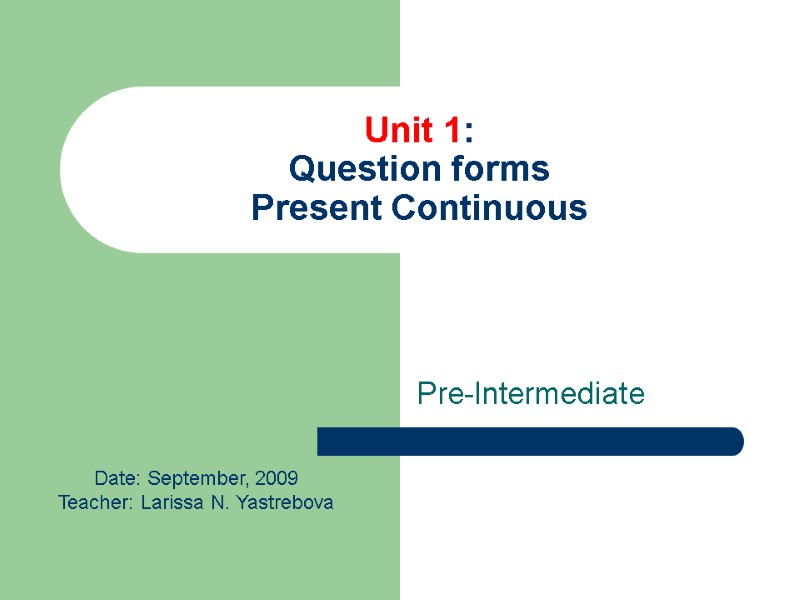 Unit 1: Question forms Present Continuous Pre-Intermediate Date: September, 2009 Teacher: Larissa N. Yastrebova
Unit 1: Question forms Present Continuous Pre-Intermediate Date: September, 2009 Teacher: Larissa N. Yastrebova
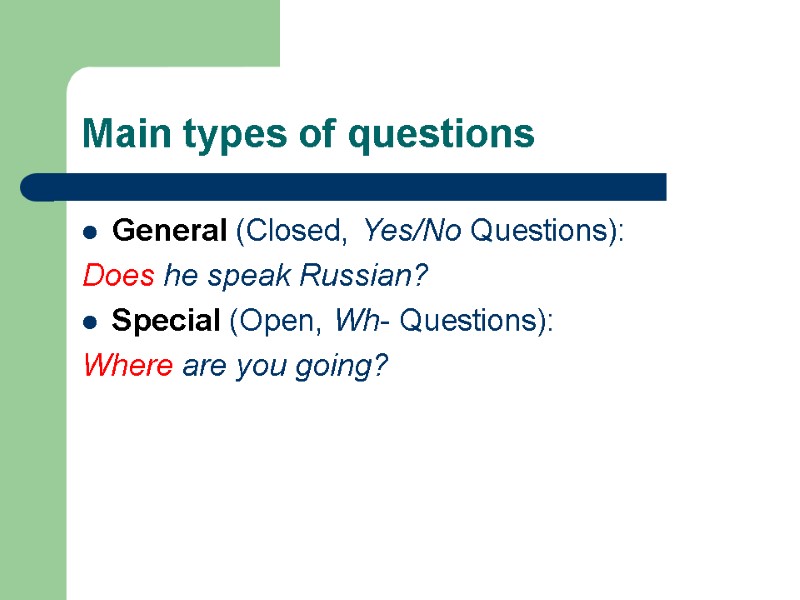 Main types of questions General (Closed, Yes/No Questions): Does he speak Russian? Special (Open, Wh- Questions): Where are you going?
Main types of questions General (Closed, Yes/No Questions): Does he speak Russian? Special (Open, Wh- Questions): Where are you going?
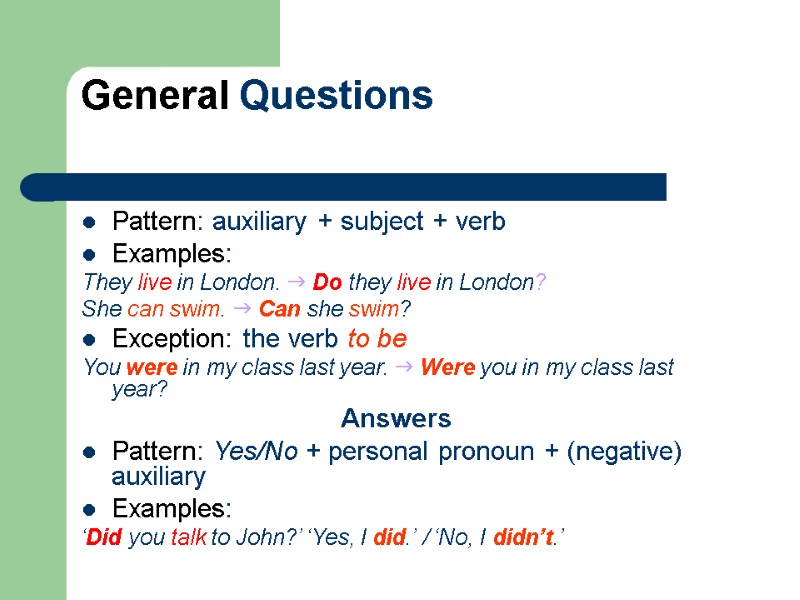 General Questions Pattern: auxiliary + subject + verb Examples: They live in London. Do they live in London? She can swim. Can she swim? Exception: the verb to be You were in my class last year. Were you in my class last year? Answers Pattern: Yes/No + personal pronoun + (negative) auxiliary Examples: ‘Did you talk to John?’ ‘Yes, I did.’ / ‘No, I didn’t.’
General Questions Pattern: auxiliary + subject + verb Examples: They live in London. Do they live in London? She can swim. Can she swim? Exception: the verb to be You were in my class last year. Were you in my class last year? Answers Pattern: Yes/No + personal pronoun + (negative) auxiliary Examples: ‘Did you talk to John?’ ‘Yes, I did.’ / ‘No, I didn’t.’
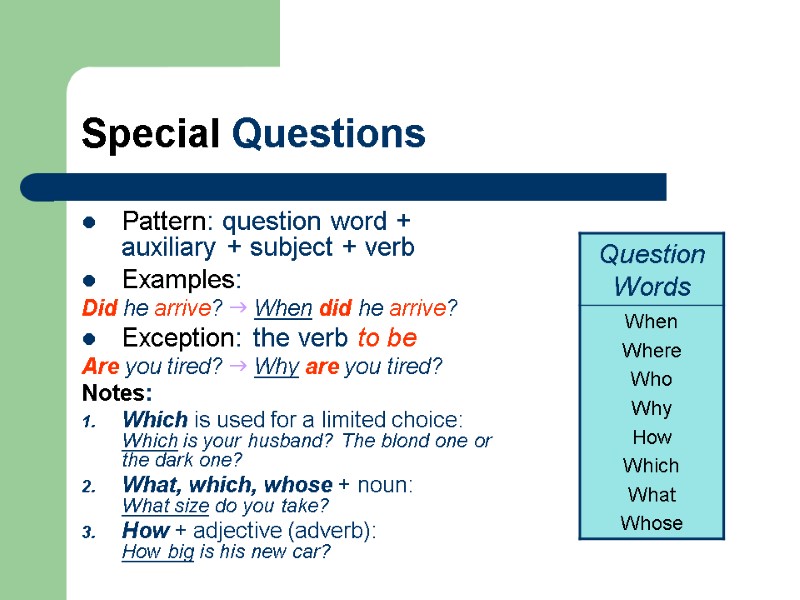 Special Questions Pattern: question word + auxiliary + subject + verb Examples: Did he arrive? When did he arrive? Exception: the verb to be Are you tired? Why are you tired? Notes: Which is used for a limited choice: Which is your husband? The blond one or the dark one? What, which, whose + noun: What size do you take? How + adjective (adverb): How big is his new car?
Special Questions Pattern: question word + auxiliary + subject + verb Examples: Did he arrive? When did he arrive? Exception: the verb to be Are you tired? Why are you tired? Notes: Which is used for a limited choice: Which is your husband? The blond one or the dark one? What, which, whose + noun: What size do you take? How + adjective (adverb): How big is his new car?
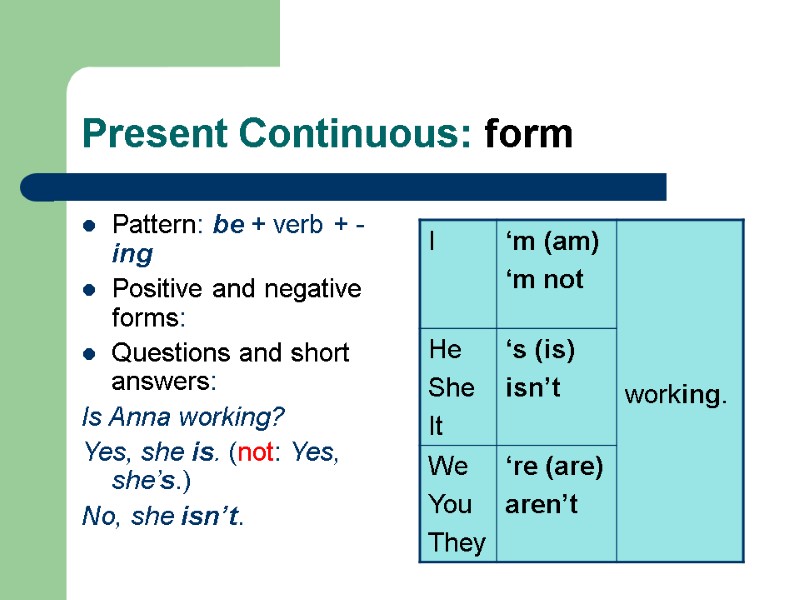 Present Continuous: form Pattern: be + verb + -ing Positive and negative forms: Questions and short answers: Is Anna working? Yes, she is. (not: Yes, she’s.) No, she isn’t.
Present Continuous: form Pattern: be + verb + -ing Positive and negative forms: Questions and short answers: Is Anna working? Yes, she is. (not: Yes, she’s.) No, she isn’t.
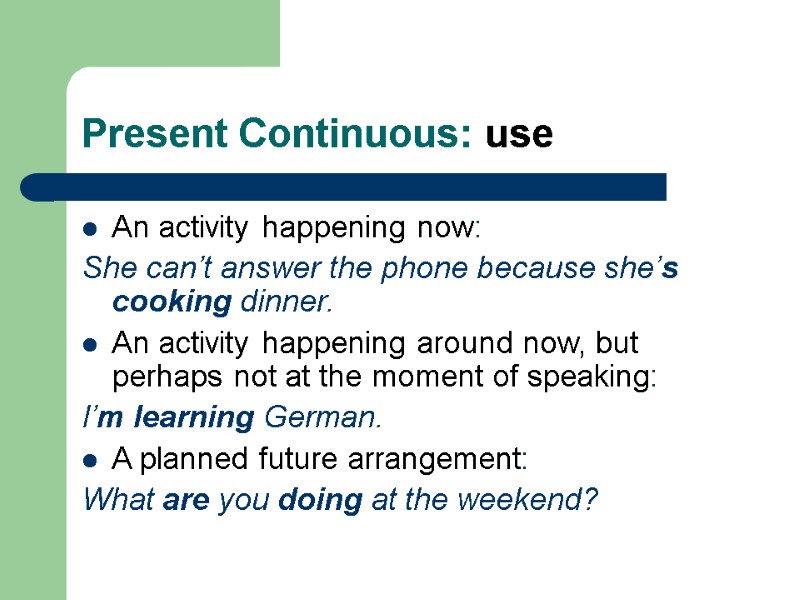 Present Continuous: use An activity happening now: She can’t answer the phone because she’s cooking dinner. An activity happening around now, but perhaps not at the moment of speaking: I’m learning German. A planned future arrangement: What are you doing at the weekend?
Present Continuous: use An activity happening now: She can’t answer the phone because she’s cooking dinner. An activity happening around now, but perhaps not at the moment of speaking: I’m learning German. A planned future arrangement: What are you doing at the weekend?













